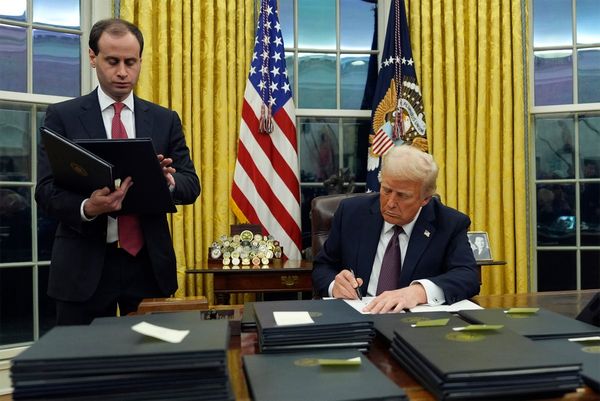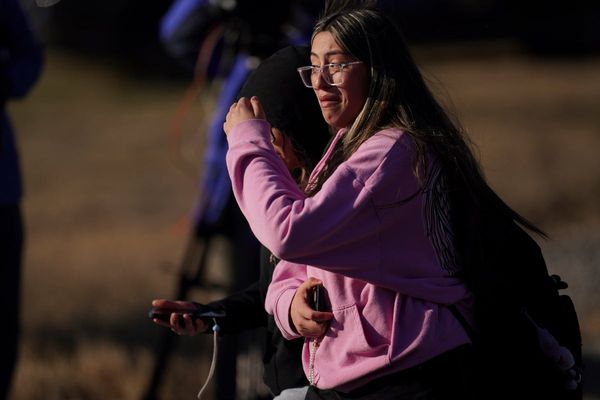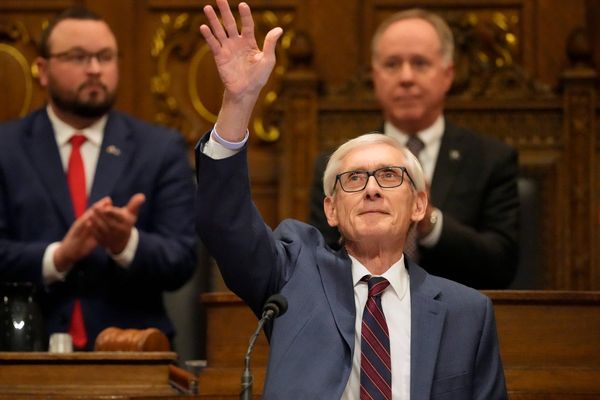
John Peel writes: Some may want the prime minister to “throw the toys out of the cot” over the climate crisis, but even in the unlikely event he would want to, I doubt if Anthony Albanese would be capable of becoming bolder or of throwing even the smallest teddy bear out of the smallest cot (“Is patience in the face of the climate crisis a virtue? Albanese will find out”).
He has been so one-eyed about staying in power that I doubt he is capable of anything resembling real political courage, least of all where climate change is concerned. As Bernard Keane points out, a whole decade has already been lost through inactivity, and the “new” government is doing close to bugger-all. New coalmines? Of course. Massive subsidies to the fossil industry? Happy to oblige. Place crippling taxes on Woodside and the other exporters of poison to the rest of the world? You must be joking. And on it goes.
Come the next election, let’s just pray the two major parties are abandoned in favour of parties or independents prepared to put a stop to this pathetic performance.
Warren Thomas writes: I agree with Keane that Albanese’s “counsel of patience looks dramatically at odds with the emergency we’ve created”. As a life member of the ALP (61 years), I find the idea of Labor continuing with the stage three tax cuts disastrous. That will be the occasion of my departure.
Labor under Gough Whitlam — and Paul Keating to a lesser extent — was a party of advocacy, not reliant on focus groups but pushing ideas for the betterment of society. The party will become a toothless tiger unless it is prepared to advocate on issues pertinent to the future welfare of the country.
Jules Morton writes: It goes without saying that Albanese needs to change course. He is inept at responding appropriately to this climate crisis and is not the leader we need. We know what scientists say we must do, so to actively expand fossil fuels is criminal, as is finding ways and means to allow fossil-fuel giants to use unlimited bogus offsets, subsidising gas with taxpayers’ money, acting like carbon capture and storage are workable, and saying we can bury emissions offshore.
Albanese’s arrogance is shameful. Labor is dropping in the polls and it does not have a mandate to kill us or our biodiversity. It will be remembered for this and this alone. I have no words for the crimes it as a party is committing, yet it is protesters who get locked up. How do Labor politicians look at themselves in the mirror?
Richard Clements writes: Labor’s policy of steady-as-she-goes and not frightening the horses must change. Australia’s gooey feeling of self-righteousness by achieving net zero emissions by 2050 is no more than stunning hypocrisy when at the same time we sell 240 million tonnes of coal and billions of litres of gas each year. Housing is in crisis and bringing in 400,000 migrants in the next two years to keep this consumer economy chugging along is utter insanity. Labor has to phase out negative gearing and the tax lurks, which it knows have to be changed.
I am in my 70s and truly despairing for the future of humans on the planet. The irony is that the planet will be fine when it flicks us off like a flea on a dog’s back as we are completely out of control.
Chris Miller writes: There are no more toys with which to play. Federal and state governments and departments, along with most industrials and industrialists, have had since the early 1990s official recognition of climate change — more than sufficient time to make firm decisions and take equally firm action, which they didn’t and haven’t.
Now is the time for very tough decisions and rigorous implementations. We can no longer ignore and sidestep what we — collectively businesses, governments, the public — have not at all cleverly produced and continue to generate for the detriment of current and later generations. A rare, honest, upfront and open confrontation of the facts and needs, combined with laws that are genuinely tough on climate-burning habits, might give us a chance, and it’d certainly set a world-leading example.
Fact: adverse climate change effects were first recognised in not the early ’90s but in the early 1900s. The impositions we should expect, in the interests of survival — if indeed we desire that — are akin to the types of rationing behaviour willingly accepted during World War II. For how long can Australians not accept the urgency?
I won’t be around for that much longer to “enjoy” the foreseen burning climate horrors, but I non-religiously pray that actions be taken by governments and businesses demonstrating, for once, unified gumption and guts, for which they will be ultimately appreciated and respected.
Grahame Giles writes: I understand that a net rise of 1.5 degrees in the planet’s average atmospheric temperature is regarded by most reputable climate/earth scientists as the tipping point where human-induced climate change advances from very serious global threat status to an impending catastrophic outcome for life on earth as we know it. I recall that less than 10 years ago, action to hold global temperature increases to less than a 1.5 degrees increase by 2035 was seen as essential. But it was changed to 2030 just last year — and now is seen as vital as no later than 2027.
It may now be too late to avoid an accelerating series of disasters such as super bushfires and massive floods driven with increasing frequency by human-induced climate change. We have seen the human and environmental costs of the 2019-20 bushfires and the 2022 Lismore floods. What is happening fire- and flood-wise overseas is a truly grim portent of what Australia can anticipate this spring and summer. We have been warned, going back to the early 1990s. But too many of us have chosen the ostrich approach. We could now pay a price beyond our worst imaginings.
Events in Europe, on Maui and in Canada’s northwest strongly suggest we may face a 2023-24 summer bushfire season of a scale not previously comprehended. I hope I am wrong but sense that hope might be hollow. Certainly communities in fire-prone areas across Australia will need to be prepared as never before, and all levels of government, especially federal, must be ready to provide unprecedented emergency support, including top-level national leadership to a standard painfully absent in the recent past.
Tim Booth writes: Albanese needs a proverbial rocket up the gazoonta! I’ve never been in a political party (unless you count the UK communists when I was a student in a previous life), but today I joined Labor specifically to strengthen my voice to the party on this single issue. All other issues are trivial in comparison.
Jo Vallentine writes: Both Christopher Warren (“As the planet burns, the world’s media wilfully ignores the big picture”) and Maeve McGregor (“AUKUS reveals the Scott Morrison show is the only one in town”) alert Crikey readers to linked episodes that demonstrate careless contempt for the future of our planet. Fires raging in the northern hemisphere are indicators of what Australia might face in the summer, and the disgraceful double-speak dished out at the ALP national conference on AUKUS ignores the real threat facing not only Australia, but the global community.
Of course the media should at every opportunity connect the firestorms with the climate crisis, and of course the ALP leadership should be addressing the climate crisis instead of peddling lies about diplomacy being at the forefront of our foreign policy, when it’s actually peddling not only militarism via our surrender of any last vestige of sovereignty to the whims of the US government, but also embracing nuclearism in that dangerous process.
It’s betrayal on steroids by this Labor government, continuing to support fossil fuels, and enmeshing our country further into US exceptionalism, which could result in a disastrous war against China.
Greg Hodges writes: I learnt about global warming and the greenhouse effect at university back in 1971 and agree with most of Warren’s article. But the words “global boiling” are “stupid” and “hysterical”. Boiling means a very specific and exact thing. We are not experiencing boiling temperatures. Such hyperbole just helps certain news outlets to ridicule the global change issue. (It used to be called global warming but was changed to global change, which is more accurate and true.)
Margaret Hurle writes: I too am disturbed at the bias of reporting of this global disaster. I get my news mainly from the ABC and sites such as Crikey and Guardian Australia, where things are better, but when I see people stressing over unimportant details, I think: “Don’t they know their bus is speeding towards a cliff? Don’t they see the big picture?”
SBS concentrates on global politics and does it well, but we don’t see Siberian and African fires because of the dearth of journalists there, but surely we could get a hint that they are happening. When I put together in my head the scattered information on sea temperatures and changing currents, floods, storms and fires, I stand appalled.







